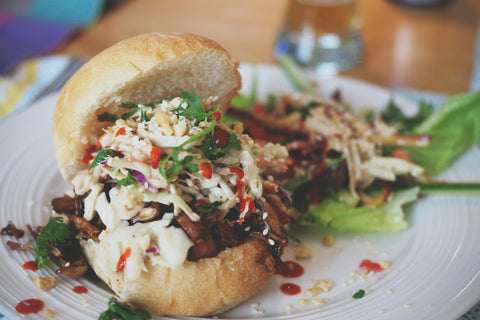Tips to Reduce Waste Food
For many people around the world, food waste has become a habit: buying more food than we need at the markets, letting fruits and vegetables spoil at home, or eating larger portions than we can eat.
These habits tax our natural resources and harm our environment. Food waste increases the source of greenhouse gases and contributes to climate change.
All over the world, tons of edible food are lost or wasted every day. Between harvest and retail alone, around 14% of all food produced globally is lost. Large amounts of food are also wasted at the retail or consumer level.
It's a big problem and only human beings can solve it!
Here are some easy actions you can take to reconnect to food and what it stands for:
Adopt a healthier, more sustainable diet
Today, people live a more fast-paced lifestyle and preparing nutritious meals can be a challenge, but healthy meals can be practical.

Buy only what you need
Plan your meals. Make a shopping list, stick to it and avoid impulse purchases. Not only will you waste less food, but you will also save money!
Pick ugly fruit and vegetables
Don't judge food by its appearance! Oddly shaped fruits and vegetables are often thrown away because they don't meet arbitrary cosmetic standards. Use ripe fruits for smoothies, juices and desserts, for example.

Store food wisely
Move old products to the front of your cabinet or fridge and new ones to the back. Use airtight containers to keep open foods fresh in the fridge and allow the packs to be based to keep out insects.

Understand food labelling
There is a big difference between "validation before" and "validation" data. Sometimes, food is still safe to eat after the "expiration date", whereas it is "expiration" data that indicates when it is no longer safe to eat. Check food labels for unhealthy ingredients such as trans fats and preservatives, and avoid foods with added sugar or salt.

Start small
Bring smaller portions home or share larger dishes at restaurants.

Love your leftovers
If you don't eat everything you make, freeze it for later or use leftovers as an ingredient like in other foods.

Put your food waste to use
Instead of throwing for leftover food, make compost. In this way you are returning nutrients to the soil and your carbon footprint.
Support local food producers
By buying local products, you help family and small businesses in your community. You also help fight disease, delivery distances for trucks and other vehicles.

Keep fish populations afloat
Eat more abundant fish species such as mackerel or herring rather than fish at risk of overfishing such as cod or tuna. Buy fish that have been sustainably caught or farmed, such as eco-labelled or certified fish.

Use less water
We cannot produce food without water! While it is important for farmers to use less water to grow food, reducing food waste also saves all the water resources used to grow it. Reduce your water intake in other ways too: fixing leaks or turning off the water while brushing your teeth!




















